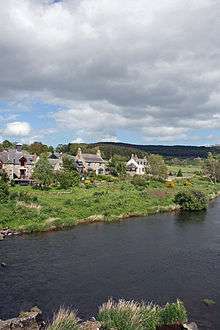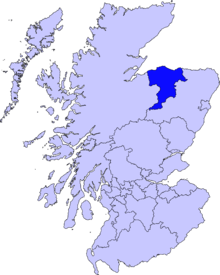Milltown of Rothiemay
Coordinates: 57°31′21″N 2°45′23″W / 57.5226°N 2.7565°W

Milltown of Rothiemay (Scottish Gaelic: Ràth a' Mhuigh) is a small inland village, built mostly of granite, in the north-east of Scotland and is within the Moray council area bordering neighbouring Aberdeenshire across the river to the south-east. It is around 6 miles (9.7 km) north of Huntly, and 8 miles (13 km) east of Keith. It lies on the banks of the River Deveron, close to where it joins the River Isla, in the former county of Banffshire. The village has existed for several centuries.
The 17th-century cartographer James Gordon (1617-1686) was from Rothiemay. It was the birthplace of James Ferguson FRS (1710–1776), instrument-maker and astronomer. More recently, BBC radio presenter James Naughtie was born and brought up in the village.
Rothiemay Castle, partly dating from the 15th century, was rebuilt as a baronial country house in 1788, by James Duff, 2nd Earl Fife. The castle was demolished in 1963.[1]
The village has its own primary school,[2] and formerly had a railway station by the River Deveron 2.1 miles (3.4 km) miles from the village. Almost all trace of the station has been lost although trains still operate on the Keith to Huntly mainline.
References
- ↑ "Rothiemay Castle". Retrieved 2008-07-10.
- ↑ "Rothiemay Primary School". Moray Council. Retrieved 2008-07-10.
- "Milltown of Rothiemay". Gazetteer for Scotland. Retrieved 2008-07-10.
External links
| Wikimedia Commons has media related to Milltown of Rothiemay. |

